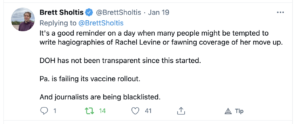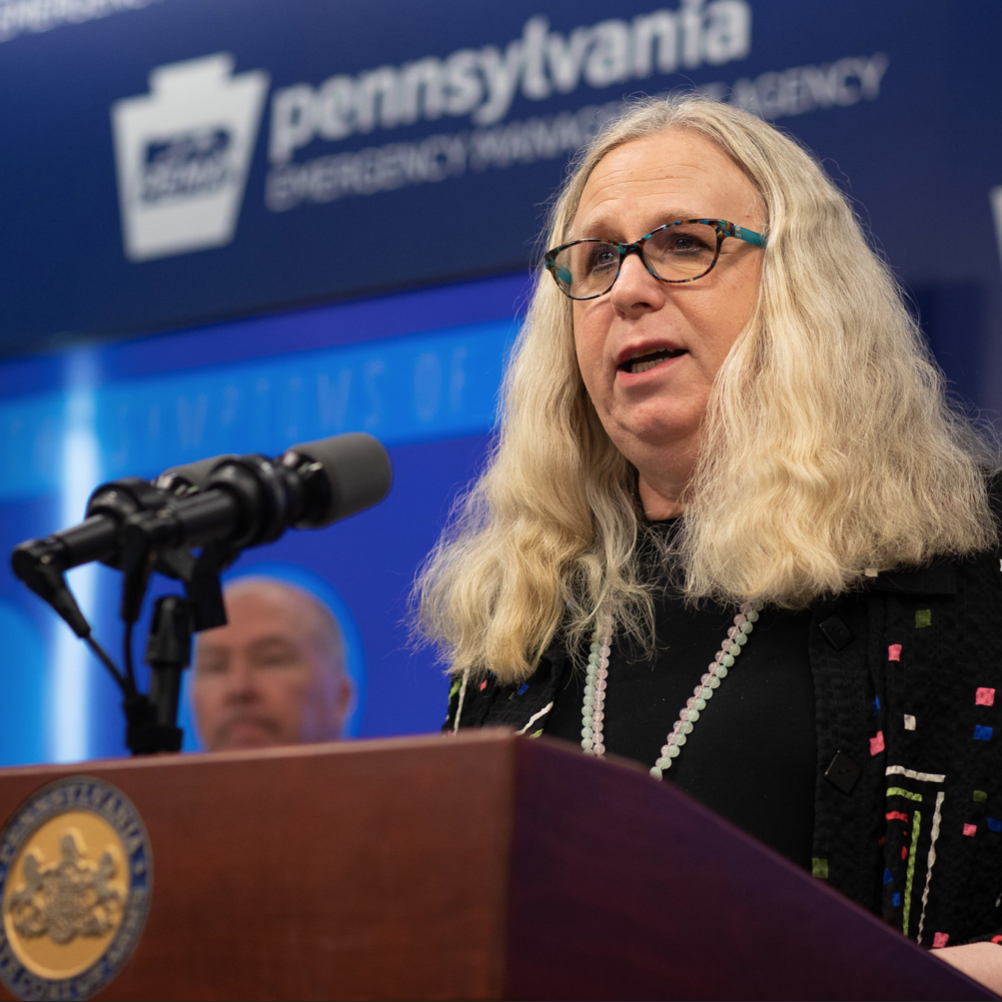Pennsylvania’s COVID-19 case investigation questionnaire asks people infected with the virus how much contact they’ve had with a K-12 school. But you wouldn’t know that from the “Early Warning Monitoring” updates the state has been distributing for months.
Schools are just one category where the state has been steadily collecting data from the public, but keeping it private.
For example, the “Early Warning” press release update from Jan. 19 gives details on community transmission, cases among 5-18-year-olds, and “the number of individuals who responded to case investigators that they spent time at business establishments.”
But the particulars stop there, even though the case investigation form shows the state was collecting much more information.
To Gina Diorio, public affairs director of the Commonwealth Partners Chamber of Entrepreneurs, it looks as though the state is being selective, and not for the sake of brevity. She obtained the case investigation questionnaire after winning a Right to Know Law appeal against the Department of Health and shared it with Delaware Valley Journal.
“Transparency shouldn’t be this difficult,” Diorio told DVJ. “The Department of Health has been hoarding and hiding data related to COVID’s spread via travel, school and college settings, healthcare settings, and more. Can we assume this data — like their restaurant and bar data — fails to support Gov. Wolf’s shutdowns and restrictions? Is that why his administration is hiding it?”
As Diorio mentions, the state questionnaire is gathering data about travel. Yet as with the other examples, the many monitoring updates from the state divulge none of it, despite placing enormous restrictions on travel.
One week before Thanksgiving, the Department of Health put out an travel orders requiring anyone over age 11 entering or returning to Pennsylvania from out of state to “produce evidence of a negative COVID-19 test or place themselves in travel quarantine for 14 days after entering the Commonwealth.”
Going back to the Jan. 19 press release, the state said, “A concerning number of recent cases have been linked to travel, and if people are going to travel, we need them to take steps to protect themselves.” But the state declined to share the data, as it does with the number of people who reported visiting a business — such as a restaurant — with a COVID-19 incident.
A spokeswoman from the DOH argued the data the state collects is not as universal as some may think.
“It’s important to remember that there are not only less people responding to contact tracers, but with the increased incidence of cases in Pennsylvania, contact tracing has been prioritized,” said April Hutcheson, director of communications for the Department of Health. “We have been asked specifically for data related to the mitigation efforts, which is why you see the data regarding people who have visited businesses.”
Diorio says she filed a follow-up Right to Know request asking for the complete data set from which the state is parceling out the statistics on the “early warning” press releases.
The Wolf administration and the DOH have repeatedly been caught in controversies over their lack of transparency.
Weeks into the pandemic, the administration was still refusing to release infection numbers for nursing homes and long-term care facilities on a facility-by-facility basis. In response, State Auditor Eugene DePasquale, a fellow Democrat, criticized the lack of information from the Wolf administration.
Reporter Brian Sheehan, previously with CBS 21 in Harrisburg, engaged in a months-long battle to try to win information about COVID-19 spread in restaurants.
In mid-August, the DOH relented and began releasing some case information, but CBS 21 wasn’t satisfied and pushed for more.
The department has faced other questions of transparency, oftentimes from these pages.
In August, DVJ explained how the DOH was obscuring emails in a Right to Know request. That story was later folded into a larger expose from Spotlight PA. Many of those emails have been turned over to DVJ in mediation, and eventually became the basis for a story on the department’s failed response to the COVID-19 nursing home crisis.
Shortly after DOH Secretary Dr. Rachel Levine was tapped for the assistant health secretary position in President Joe Biden’s new administration, WITF health reporter Brett Sholtis complained that the DOH was avoiding taking his questions in a virtual press conference.
“Another day, another @PAHealthDept online press conference where April Hutcheson did not call on me to ask a question. DOH says it responds in order of those who RSVPd,” Sholtis began in a thread of tweets.
“It’s a good reminder on a day when many people might be tempted to write hagiographies of Rachel Levine or fawning coverage of her move up. DOH has not been transparent since this started. Pa. is failing its vaccine rollout. And journalists are being blacklisted.”


